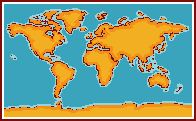|
  

In this age of the World Wide Web, globalism and international terrorism, knowledge of the larger world is seen as increasingly important. Mark M. Krug reasonably noted that, "some basic knowledge about the history of China is essential for an understanding of the present foreign policy of mainland China."While such background knowledge cannot predict future events (Hitler's astonishing repeat of Napoleon's Russian debacle notwithstanding), it can, according to Krug, provide helpful insights: "The knowledge of how men acted in the past, how they have striven to order the life of their respective societies, and how they have striven to overcome diversity, may not always suggest ingenious solutions to present crises, but it undoubtedly makes the task easier by providing a background and a body of past experience. History is indeed an inexhaustible source of examples and modes of life and 'styles of life,' and as such, and to that extent, it is a school of wisdom."
"History doesn't tell us the answers to our questions, but it helps to inform us so that we might make better decisions in the future." (President Thomas Jefferson)
As Rene Dubos, the 1969 Pulitzer Prize recipient, stated: “It becomes obvious that each of us has two countries, our own and planet earth.” As global interdependence has become a reality, it has become vital for the citizens of this world to develop literacy in global matters.

Modern World History will be divided up into the following units :
Quarter One/Three |

Quarter Two/Four
|
Europe
Russia
Africa
Latin America |
East Asia
Middle East
The World Today |
Quarter One/Three: Unit Topics
Europe |
Russia |
Africa |
Latin America |
*The search for spices
*Age of Reason
*Enlightenment Spreads
*On the eve of the
Revolution
* The French Revolution
Unfolds
*Radical Days of the
Revolution
*Age of Napolean
*Dawn of the Industrial
Age
* Britain leads the way
*Social Impact of the
Industrial Revolution
*New Ways of Thinking
*Arts in the Industrial Age
*Democratic Reform in Britain
|
*Rise of Russia
*Absolute Monarchy in
Russia
* Russia: Reform and
Reaction
*Revolution and Civil War
*The Soviet Union under
Stalin
|
*Building Overseas Empires
*The Partition of Africa
*Nationalism in Africa
*African Nations gain
Independence
*Struggles in Africa
* Africa Seeks a Better Future
|
* Conquest in the Americas
* Spanish and Portuguese
Colonies in the Americas
* Revolts in Latin America
* Struggles in Latin America
* Latin America Builds
Democracy
|
Quarter Two/Four: Unit Topics …
East Asia |
Middle East |
The World Today |
* European Footholds in East Asia
* Encounters in East Asia
* The British Take Over India
* China and the New Imperialism
* Japan Modernizes
* India Seeks Self Rule
*Upheavals in China
* Conflicting Forces in Japan
* Communism Spreads in East Asia
* Independent Nations of South Asia
* New Nations of Southeast Asia
* China and India: Two Giants of Asia |
*Nationalism in the Middle East
* The Modern Middle East
* Conflicts in the Middle East
|
* Putin Government
* Chechnya
* North Korea
* Pakistan/India Kashmir Conflict
* Afghanistan – Taliban – Al Qaeda
* Conflict with Iran
* Palestinian/Israeli Conflict
* Islamic Fundamentalism
* Globalization
* Human Rights
* Science & Technology
|

Required Materials:
- World History: Prentice Hall
- Modern World History: 3-ringed notebook
- Pens/pencils/colored pencils (optional for map work)
- Loose leaf paper
Tests in Modern World History
- Unit Tests in Modern World History will include the following:
- Open Note Section: Students will be assigned specific pages during each unit to read and take notes on – these notes may be used on the unit test
- Closed Note Section: This part of the test will cover notes, discussions, assignments done in class
- Essay Question (covering an important concept or event presented in the unit)
Homework:
- During each Quarter students in Modern World History will be responsible for learning about a region of the world independently.
Quarter One/Three |
Quarter Two/Four |
Latin America |
Middle East |
- Students will be required to read and take notes on the regions listed in the table. These student generated notes may be used on the unit test. Student notes will be checked periodically during the Quarter for Homework points.
- All textbook reading not finished in class is expected to be completed as homework.
- All daily assignments not completed in class will also be considered homework
Videotapes:
Throughout the semester there will be a variety of videotapes concerning the various regions of the world we study. Students are expected to take notes over these videotapes and will be awarded points for their effort. If a student misses a videotape the video will be excused unless material from the video will appear on a test.

"The student who reads history will unconsciously develop what is the highest value of history: judgment in worldly affairs. This is a permanent good, not because "history repeats" - we can never exactly match past and present situations - but because the "tendency of things" shows an amazing uniformity within any given civilization. As the great historian Burckhardt said of historical knowledge, it is not 'to make us more clever the next time, but wiser for all time.'" -Jacques Barzun, Begin Here
Late Work and Assignments :
- Daily work/Homework: 30% of grade
A make-up sheet must be attached to late work before it can be accepted for credit.
1 day late= 90% credit
2 or more days= 10% off for each day late with a maximum 50% (No credit after 8 th week of the qt.)
- Tests/Quizzes: 70% of grade
Students are given 5 days to make-up test/quiz upon returning from an absence .
Grading:
Your final grade will be determined on a weighted scale as follows.
70%- Tests, Quizzes, Projects, Essays
30%- Daily Assignments, Study Guides, Maps
100-94 A 86-83 B 76-73 C 66-63 D
93-90 A- 82-80 B- 72-70 C- 60-62 D-
89-87 B+ 79-77 C+ 69-67 D+ 59-0 F
Additional information:
- All assignments must be neat and complete. You may be asked to redo an assignment that is of poor quality.
- You are not allowed to have beverages, candy or chips (things that you can eat) etc., unless given permission by the teacher.
- Hall passes will be available, do not abuse the privilege!
- No Walkman, videogames,…etc.
- Ethnical use of Technology (EX: no games on computers, Cell phones not visible and turned off)
- Additional rules may be posted in the classroom.
Assigned time before or after school, contact parent(s), in-school or after school detention.
- Textbook - Prentice Hall World History will be available online.
www.phschool.com username: modern07 password: history07
Expectations :
Students will be expected to read materials provided to them in class and complete assessments in a timely fashion. In addition, students will need to be aware of current events in the areas discussed throughout the course. This may be accomplished through watching the national news and reading news journals. Attendance will be crucial for successfully completing this course. Students will be at their best behavior when speakers are present during the semester. Students will be expected to be on time and in their seat when the bell rings. Students will be expected to remain in their seat until the bell dismissed you or the teacher dismisses you.
Mr. Maupin
Room A206 Office: A208
Voice Mail: 683-6969 Ext. 94456
Roger.maupin@district196.org
|







